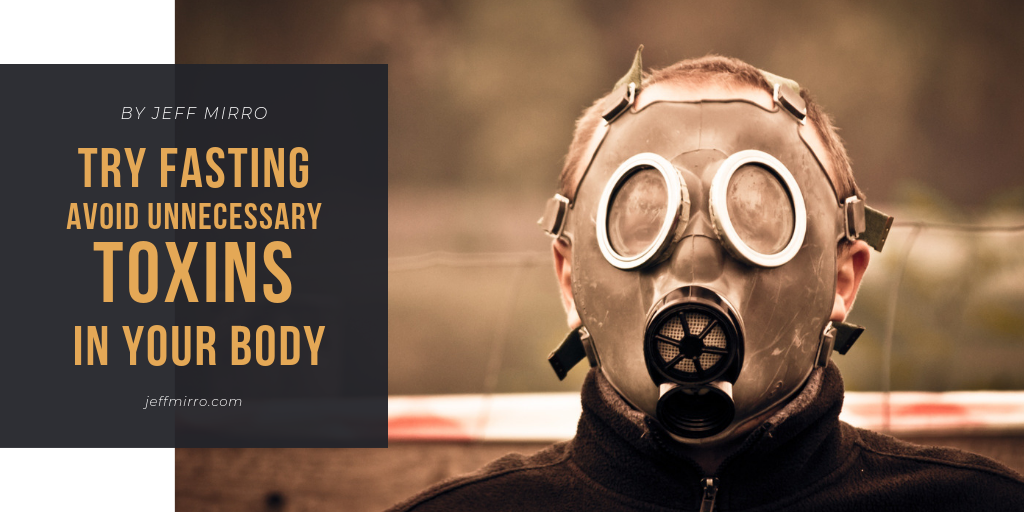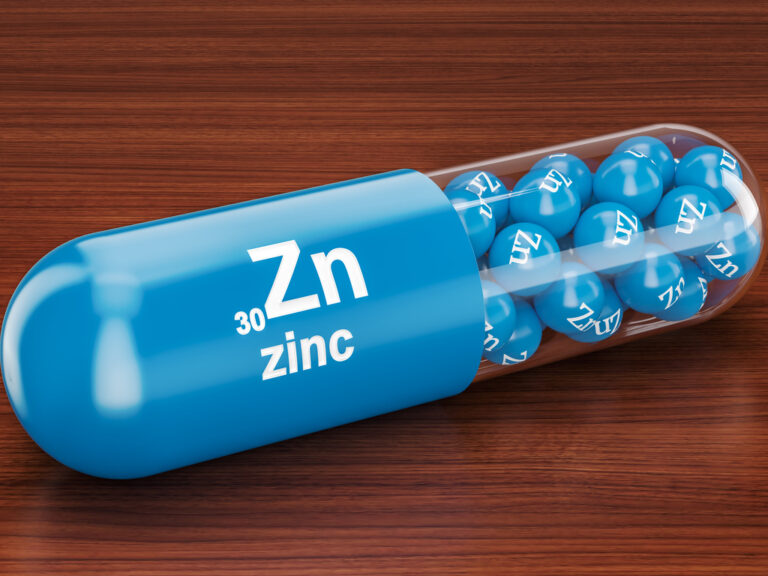Obviously, the whole message of this blog is that fasting is the most important thing you can do for your health. Beyond all the benefits it can provide, one of the biggest reasons is just purely avoiding the many toxins that surround us and that we take in on a daily basis. Take these stories for example…
Back in the 1960s, children in one Midwestern neighborhood spent hot summers splashing at each other in the local creek. They never dreamed that a few years later they’d start dying of lung cancer, leukemia, bone cancer, breast cancer and worse, thanks to the nuclear waste that was dumped in their home town. A day’s drive south, other children grew up to develop cancer at a rate 50 times higher than the national average, thanks to the toxic air being churned out of petrochemical plants, which earned the region the nickname “Cancer Alley.”Water supplies at many military bases are contaminated by chemicals that are linked to birth defects and rare cancers. It all might sound pretty dire, but these are just headlines to most people.
It’s tempting to put the issues of toxic air and toxic water “out of sight, out of mind.” We might want to become like the “see-no-evil, hear-no-evil” monkeys, but the threat is closer than you might think. You don’t have to live in a contaminated area or an EPA Superfund site to encounter toxins. In fact, there’s simply no way to avoid toxin exposure today, whether you live in the city, the country or anywhere in between, whether you eat an organic diet or a processed diet, and whether you drink straight from the tap or nothing but the purest filtered water.
Toxin Exposure and Toxin Overload
At its most basic level, a toxin can be defined as anything that is toxic. However, the term is most commonly used to refer to synthetic chemicals that have harmful effects on the body. Toxins are commonly found in our:
- Water
- Air
- Food
- Land
- Clothing and textiles
- Personal hygiene products and home cleaning supplies
- Home furnishings, decor, and building materials
- Fertilizers, pesticides and other products sprayed on foods
Toxins come from the flame retardants in our mattresses and carpets, the VOCs in our paints, the BPA in our canned foods, artificial flavors in our drinks, artificial dyes in our supplements and pollutants in our air. Even with the healthiest lifestyles, we simply cannot avoid them all. Each exposure adds up, and by the end of the day, we might be getting a lot more than we bargained for each time we take a breath, take a sip or take a bite.
Unfortunately, our bodies can become overwhelmed by toxins, and they build up, often in our fat stores, where they cannot be easily eliminated. This can lead to imbalances, inflammation, and hormonal problems as well as reduced organ function. When you’re suffering from toxin overload, you will no longer be able to process or eliminate toxins properly, which can lead to increased free radical damage, digestive problems, decreased immunity, allergies, and other potentially serious health issues.
Your Body’s Natural Detox Process
Cleanses and detoxes are pretty popular these days, but your body has its own natural detoxification system. It filters potentially dangerous substances and byproducts through the kidneys and liver, and then they are flushed out of your body through sweat, urine and the bowels. This is usually an extremely efficient system that doesn’t need a lot of outside help from special drinks or pills.
Unfortunately, our toxic load is much higher than our ancient ancestors’ toxic load. We are exposed to pollutants and toxins that weren’t even around as recently as a few decades ago, and many of them have never been tested for safety. We don’t even know what their long-term effects might be!
Still, you might be surprised that our bodies continue to be quite well-equipped to manage their own detoxing process with just a little nudge from us in the form of a fast. When you fast, your body diverts its energy from digestion and other normal processes and focuses instead on eliminating accumulated sludge and debris. Your overtaxed organs get a rest while the excess fluid and waste in your tissues can be released.
Fasting is one of the most effective detox systems there is, and it’s completely natural. It’s like a thorough deep-cleaning at the cellular level.
Fasting and Your “Second Brain”
Your digestive system does a lot more than just break your food down. It’s often called the “second brain,” thanks to the extensive collection of neurons that connect it to the brain. Intestinal cells are also critical for repairing and regenerating tissues. Unfortunately, these cells tend to decline with age and toxin exposure, which can lead to decreased immune function and gastrointestinal disorders. According to an MIT study, just 24 hours of fasting can jumpstart these cells back into action, essentially by flipping a switch that triggers them to break down fatty acids for energy instead of glucose.
That’s not all that happens. According to the researchers, even a short period of fasting can trigger significant regeneration in the tissues. They concluded that intermittent fasting wasn’t just good for your waistline: It might also slow age-related changes in tissue function at the molecular level.
Dry fasting ups the ante even more. Instead of removing the debris through the usual routes, such as sweat and urine, your body will incinerate the accumulated toxins and cell waste, and new stem cells will replace the torched cells. The regeneration process is sped up, stimulating the cell renewal process.
What is Dry Fasting?
While most of us think of a fast as going without food, a dry fast involves going without food and water. Dry fasting might sound extreme, but it has a long tradition in cultures and religions around the world and is still practiced today. Dry fasting benefits can be profound.
Damaging microorganisms cannot survive without water, which is why a dry fast can be so powerful when it comes to destroying inflammation. The blood and lymph fluid are cleansed, and all remaining fluid is purified. Only the strongest cells and tissues will survive as the body’s house-keeping team leaps into action and sweep away all dead or dying cells, toxins and debris.
Why Fasting Works
When you graze all day long or eat regularly spaced meals, your digestive system is constantly working and your liver and kidneys are always filtering and flushing toxins. When you fast, even if that just means eating one meal a day, your body gets a break, which lowers overall inflammation rates, boosts your metabolism and switches your body to using fat as fuel.
This is the underlying principle of the popular keto diet, which is high in fat and low in carbs. The keto diet kick starts a process called ketosis, which forces the body to lose fat without compromising muscle stores. Much like intermittent fasting, ketosis can help boost the autophagy process. If you want to power up cell regeneration and renewal while destroying inflammation, though, fasting is where it’s at.
Switching to a Fasting Focused Lifestyle
Studies have shown numerous benefits of IF, from improved cognitive function to better heart health. It might not be the fountain of youth, but it’s pretty close when it comes to cell regeneration and clearing out those stored toxins.
Those accumulated toxins are slowly poisoning your body and can also:
- Keep you from losing weight
- Speed the aging process
- Leave you feeling sluggish and dull
- Disrupt hormone balance
- Trigger disease processes
Cleaning the toxins out of your system with IF or intermittent dry fasting can help restore your energy levels, boost your immune system, improve your insulin sensitivity, clear your skin up and help you feel revitalized and renewed.
It can be hard to change your mindset from grazing all day or from eating three meals a day, but you can start with a 16:8 fast and work your way down to one meal a day or 23:1. Once your body and mind have adjusted, you’ll learn to love the freedom that comes from having more time and energy to devote to yourself and less time spent on grocery shopping and meal planning. What’s more, your body will be operating at its peak, sweeping out all those old toxins and cells and regenerating healthier new cells.




